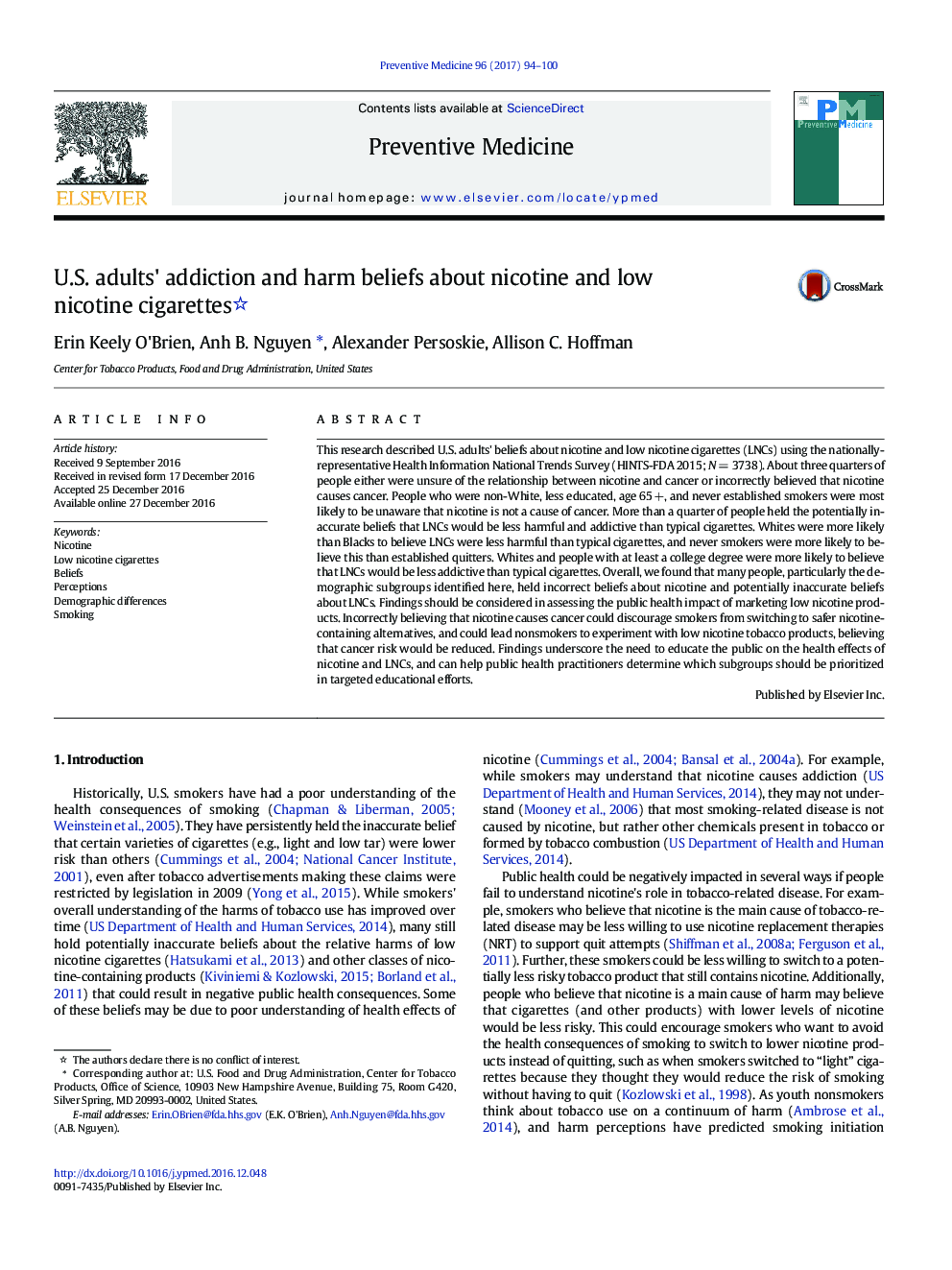| کد مقاله | کد نشریه | سال انتشار | مقاله انگلیسی | نسخه تمام متن |
|---|---|---|---|---|
| 5635715 | 1581618 | 2017 | 7 صفحه PDF | دانلود رایگان |
عنوان انگلیسی مقاله ISI
U.S. adults' addiction and harm beliefs about nicotine and low nicotine cigarettes
ترجمه فارسی عنوان
اعتیاد به بزرگسالان ایالات متحده و اعتقادات بد در مورد نیکوتین و سیگار نیکوتین پایین
دانلود مقاله + سفارش ترجمه
دانلود مقاله ISI انگلیسی
رایگان برای ایرانیان
کلمات کلیدی
نیکوتین، سیگار نیکوتین پایین، باورها، ادراکات، تفاوت های دموگرافیک، سیگار کشیدن،
موضوعات مرتبط
علوم پزشکی و سلامت
پزشکی و دندانپزشکی
طب مکمل و جایگزین
چکیده انگلیسی
This research described U.S. adults' beliefs about nicotine and low nicotine cigarettes (LNCs) using the nationally-representative Health Information National Trends Survey (HINTS-FDA 2015; NÂ =Â 3738). About three quarters of people either were unsure of the relationship between nicotine and cancer or incorrectly believed that nicotine causes cancer. People who were non-White, less educated, age 65Â +, and never established smokers were most likely to be unaware that nicotine is not a cause of cancer. More than a quarter of people held the potentially inaccurate beliefs that LNCs would be less harmful and addictive than typical cigarettes. Whites were more likely than Blacks to believe LNCs were less harmful than typical cigarettes, and never smokers were more likely to believe this than established quitters. Whites and people with at least a college degree were more likely to believe that LNCs would be less addictive than typical cigarettes. Overall, we found that many people, particularly the demographic subgroups identified here, held incorrect beliefs about nicotine and potentially inaccurate beliefs about LNCs. Findings should be considered in assessing the public health impact of marketing low nicotine products. Incorrectly believing that nicotine causes cancer could discourage smokers from switching to safer nicotine-containing alternatives, and could lead nonsmokers to experiment with low nicotine tobacco products, believing that cancer risk would be reduced. Findings underscore the need to educate the public on the health effects of nicotine and LNCs, and can help public health practitioners determine which subgroups should be prioritized in targeted educational efforts.
ناشر
Database: Elsevier - ScienceDirect (ساینس دایرکت)
Journal: Preventive Medicine - Volume 96, March 2017, Pages 94-100
Journal: Preventive Medicine - Volume 96, March 2017, Pages 94-100
نویسندگان
Erin Keely O'Brien, Anh B. Nguyen, Alexander Persoskie, Allison C. Hoffman,
